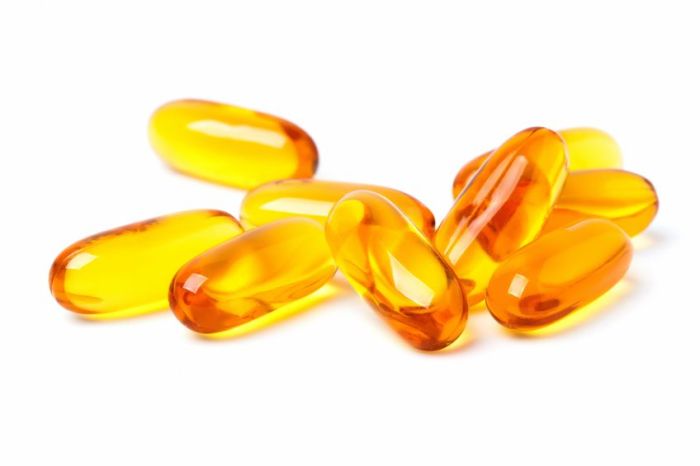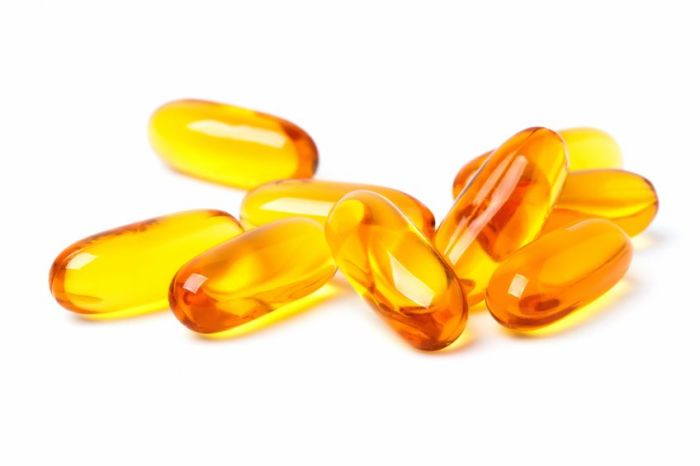Does fish oil lower blood pressure? This question is frequently asked by those looking for natural ways to manage their blood pressure. Fish oil, rich in omega-3 fatty acids, holds promise, but the scientific evidence is complex. This post will explore the potential benefits and drawbacks of incorporating fish oil into a blood pressure management strategy, looking at everything from the science behind its potential effects to the individual factors that might influence how it works for you.
We’ll delve into the composition of fish oil, examine research studies, explore potential mechanisms of action, and discuss important considerations like potential side effects and individual variability. Finally, we’ll explore alternative and complementary approaches, providing a holistic view of how fish oil might fit into a broader health plan for blood pressure management.
Introduction to Fish Oil and Blood Pressure
Fish oil, a popular dietary supplement, is derived from fatty fish like salmon, tuna, and mackerel. Its primary components are omega-3 fatty acids, specifically eicosapentaenoic acid (EPA) and docosahexaenoic acid (DHA). These essential fatty acids are associated with a range of potential health benefits, including cardiovascular support. While fish oil’s role in maintaining healthy blood pressure is a subject of ongoing research, its impact on cardiovascular health is a significant area of interest.The potential mechanism by which omega-3 fatty acids in fish oil might affect blood pressure involves several pathways.
EPA and DHA can help reduce inflammation throughout the body, a factor often implicated in high blood pressure. They also seem to impact the production of certain compounds that influence blood vessel function and tone. Studies suggest that these effects can contribute to a lowering of blood pressure in some individuals. However, the precise mechanisms are not fully understood and require further investigation.
Types of Fish Oil Supplements, Does fish oil lower blood pressure
Various types of fish oil supplements are available, differing in their source, processing, and concentration of EPA and DHA. Some common types include triglyceride-based fish oil, ethyl ester-based fish oil, and purified fish oil. The triglyceride form is often considered more easily digested and absorbed by the body. The ethyl ester form, while potentially more concentrated in EPA and DHA, may have a higher risk of stomach upset for some individuals.
Methods of Fish Oil Consumption
Fish oil supplements are commonly consumed in capsule or liquid form. Capsules are often preferred for their convenience, while liquid forms may be more suitable for individuals who find swallowing capsules challenging. It’s important to follow the recommended dosage instructions on the product label. Consistency in intake is key to achieving potential benefits.
Fish Oil Brand Comparison
| Brand Name | Key Ingredients | Dosage (per capsule) | Approximate Price (USD) |
|---|---|---|---|
| Omega-3 Brand A | EPA and DHA | 1000mg | 15-20 |
| Omega-3 Brand B | EPA and DHA, Vitamin D | 1500mg | 25-30 |
| Omega-3 Brand C | EPA, DHA, and other nutrients | 1200mg | 18-25 |
| Nature’s Bounty Omega-3 | EPA and DHA | 1000mg | 12-18 |
Note: Prices are approximate and may vary based on retailer and specific product.
Scientific Evidence on Fish Oil and Blood Pressure Reduction: Does Fish Oil Lower Blood Pressure

Fish oil, rich in omega-3 fatty acids, has garnered attention for its potential role in cardiovascular health, including blood pressure regulation. While anecdotal evidence and some preliminary studies suggest a link, robust scientific backing is crucial for understanding the true impact of fish oil on blood pressure. This section delves into the existing research, examining the strengths and weaknesses of different study types and the factors influencing the effectiveness of fish oil supplementation.The scientific evidence surrounding fish oil and blood pressure reduction is complex and often nuanced.
Studies have employed various methodologies, and the results have varied in terms of magnitude and consistency. Understanding these complexities is essential for interpreting the available data and making informed decisions about incorporating fish oil into a health regimen.
Research Study Designs and Findings
Different study designs provide varying levels of evidence. Observational studies, while useful for identifying potential associations, cannot definitively prove causality. Randomized controlled trials (RCTs), which assign participants to groups randomly, offer stronger evidence for cause-and-effect relationships.
While some studies suggest fish oil might help lower blood pressure, it’s not a guaranteed fix. Different factors play a role, and for a deeper dive into potential supplements, you should explore what you need to know about DMAE, DMAE what should I know about it. Ultimately, consulting a healthcare professional is crucial for personalized advice on managing blood pressure effectively.
Observational Studies
Observational studies have explored correlations between fish oil consumption and blood pressure in large populations. These studies often reveal trends, suggesting that individuals who consume more fish oil might have lower blood pressure, but they cannot account for confounding factors. For instance, individuals who regularly consume fish oil might also follow healthier lifestyles, including a balanced diet and regular exercise.
Randomized Controlled Trials (RCTs)
RCTs, considered the gold standard for evaluating causal relationships, directly assess the effect of fish oil supplementation on blood pressure. Participants are randomly assigned to either a fish oil group or a control group (receiving a placebo or no treatment). This design helps minimize bias by ensuring similar characteristics across groups, enhancing the reliability of results. However, RCTs often have limitations, such as the relatively short duration of the study and the possibility of participant adherence issues.
Magnitude of Blood Pressure Reduction
The observed blood pressure reduction in studies using fish oil supplementation has been variable. Some studies report a modest decrease in blood pressure, while others show minimal or no significant effect. The magnitude of reduction is influenced by various factors, including the dosage of fish oil, the duration of the study, and the characteristics of the participants. For instance, individuals with pre-existing hypertension might experience a greater reduction compared to those with normal blood pressure.
Factors Influencing Effectiveness
Several factors might influence the effectiveness of fish oil in lowering blood pressure. These include the dosage of fish oil consumed, the duration of the supplementation, the type of fish oil used, and the individual characteristics of the participants, such as age, gender, and pre-existing health conditions.
Summary Table of Studies on Fish Oil and Blood Pressure
| Study | Methodology | Sample Size | Key Findings |
|---|---|---|---|
| Example Study 1 (RCT) | Randomized, double-blind, placebo-controlled trial | 150 participants | Significant reduction in systolic blood pressure (∼3 mmHg) after 12 weeks of supplementation with 3g fish oil per day. |
| Example Study 2 (Observational) | Cohort study following participants over 5 years | 1000 participants | Positive correlation between fish oil intake and lower blood pressure; however, causality cannot be established. |
| Example Study 3 (RCT) | Randomized, double-blind, placebo-controlled trial | 200 participants | No significant effect on blood pressure after 6 months of fish oil supplementation at 1g per day. |
Note: This is a simplified example; actual studies would contain much more detailed information. The provided table is a hypothetical representation for illustrative purposes only. Consult with a healthcare professional for personalized advice.
Potential Mechanisms of Action
Fish oil, rich in omega-3 fatty acids, has shown promise in potentially lowering blood pressure. Understanding the underlying biological pathways through which these effects occur is crucial for further research and application. This section delves into the possible mechanisms by which fish oil might influence blood pressure regulation.The impact of omega-3 fatty acids on blood pressure is multifaceted, stemming from their influence on various biological processes within the body.
These include anti-inflammatory effects, improvements in vascular function, and alterations in blood vessel properties.
Role of Omega-3 Fatty Acids in Reducing Inflammation
Omega-3 fatty acids, particularly EPA and DHA, possess potent anti-inflammatory properties. They exert this influence by modulating the production and activity of inflammatory mediators like cytokines. By reducing inflammation throughout the body, including within the blood vessels, omega-3s potentially contribute to a healthier vascular environment. This reduced inflammatory state is believed to play a role in maintaining normal blood pressure levels.
While I’m researching whether fish oil truly lowers blood pressure, I’ve stumbled upon some interesting information about treating sinus infections with antibiotics like azithromycin. It seems like a crucial question, especially for those experiencing sinus issues. Checking out this article on treating sinus infection with azithromycin is it safe might offer some insight. Ultimately, I’m still curious to know if fish oil has any impact on blood pressure, and hopefully, some reliable research will clear things up soon.
Improvement in Vascular Function
Omega-3 fatty acids significantly impact the function of blood vessels. They can improve the elasticity and responsiveness of blood vessels, allowing them to dilate and constrict more effectively in response to the body’s needs. Improved vascular function contributes to smoother blood flow, reducing resistance and potentially lowering blood pressure. This improvement in blood vessel function is vital for proper blood pressure regulation.
Impact on Blood Vessel Dilation and Relaxation
Fish oil’s influence on blood vessel dilation and relaxation is a key component in its potential blood pressure-lowering effects. Omega-3 fatty acids can directly influence the production and release of nitric oxide, a key molecule involved in vasodilation (widening of blood vessels). Increased nitric oxide production leads to smoother blood vessel relaxation, reducing resistance to blood flow and, consequently, potentially lowering blood pressure.
For example, individuals with hypertension often exhibit impaired nitric oxide production, and supplementation with omega-3s may help restore this function.
Illustrative Diagram of Potential Pathways
Imagine a simplified diagram with a central circle representing the blood vessel. Several arrows emanating from the circle represent the factors influencing blood vessel tone. One arrow originates from the “Fish Oil Intake” box, and this arrow is connected to the “Increased Nitric Oxide Production” box, which in turn is connected to the “Blood Vessel Dilation” box. The “Blood Vessel Dilation” box has an arrow leading to the “Reduced Blood Pressure” box.
Another arrow from “Fish Oil Intake” connects to the “Reduced Inflammation” box, which in turn is connected to the “Improved Vascular Function” box. The “Improved Vascular Function” box also has an arrow pointing to the “Reduced Blood Pressure” box.
This simplified diagram illustrates the potential pathways by which fish oil can lower blood pressure. The influence of fish oil is not limited to a single pathway; rather, its effects are interconnected and synergistic.
This suggests that the comprehensive influence of omega-3s on vascular function, inflammation, and nitric oxide production contributes to the potential blood pressure-lowering effect.
Considerations and Limitations
Fish oil supplements, while potentially beneficial for blood pressure management, are not a one-size-fits-all solution. Understanding the potential side effects, interactions with other medications, and the importance of professional guidance is crucial for safe and effective use. This section explores the limitations and considerations surrounding fish oil consumption for blood pressure control.
Potential Side Effects
Fish oil, despite its purported health benefits, can sometimes cause adverse reactions. These range from mild discomfort to more serious concerns. It’s important to be aware of these possibilities and to monitor your body’s response to the supplements.
- Gastrointestinal Issues: Common side effects include nausea, heartburn, bloating, and diarrhea. These effects are often mild and temporary, resolving with continued use or adjustment of dosage. However, if symptoms persist or worsen, it’s vital to seek medical advice.
- Allergic Reactions: Some individuals may experience allergic reactions such as skin rashes, itching, or swelling. These reactions can vary in severity, and immediate medical attention is necessary if a severe allergic reaction occurs. Fish oil allergies are less common than other food allergies, but they do exist.
- Bleeding Risk: Fish oil can thin the blood, potentially increasing the risk of bleeding, particularly in individuals already taking blood-thinning medications. This interaction is important to note, and careful monitoring by a healthcare professional is recommended.
- Other Potential Effects: Less frequent but possible side effects include bad breath, fishy aftertaste, and skin discoloration. These are typically mild and temporary.
Medication and Supplement Interactions
Fish oil can interact with certain medications and supplements, potentially altering their effectiveness or increasing the risk of side effects. Understanding these interactions is essential for safe supplementation.
- Blood Thinners: Fish oil can enhance the effects of blood-thinning medications like warfarin (Coumadin), increasing the risk of bleeding. Dosage adjustments may be necessary under the supervision of a physician.
- Anticoagulants: Similar to blood thinners, fish oil can increase the risk of bleeding in individuals taking anticoagulants. Careful monitoring of blood clotting factors is important when using fish oil alongside these medications.
- Other Medications: Fish oil may interact with certain medications for conditions like high cholesterol, diabetes, or arthritis. Consult with a doctor before using fish oil supplements if you are taking other medications.
Importance of Professional Guidance
The decision to incorporate fish oil into a blood pressure management strategy should be made in consultation with a healthcare professional. They can assess individual needs and potential risks.
It’s crucial to remember that self-treating with supplements can be risky. A doctor can tailor a strategy to your specific situation, considering your current health status, medications, and medical history. This individualized approach is essential for ensuring the supplement aligns with your overall health goals.
Comparison with Other Blood Pressure Management Strategies
Fish oil is one tool in a broader toolkit for managing blood pressure. It’s important to consider its role alongside other lifestyle changes and medical interventions.
| Strategy | Description | Potential Advantages | Potential Disadvantages |
|---|---|---|---|
| Fish Oil | Dietary supplement containing omega-3 fatty acids | May help lower blood pressure in some individuals | Potential side effects, interactions with medications, requires professional guidance |
| Dietary Changes | Adjusting diet to reduce sodium and increase fruits/vegetables | Effective for long-term blood pressure management | Requires commitment and consistent effort |
| Exercise | Regular physical activity | Reduces blood pressure and improves overall health | Requires commitment and consistency |
| Stress Management | Techniques to reduce stress levels | Helps lower blood pressure and improve well-being | Requires learning and practice |
Fish Oil and Blood Pressure: Individual Variability
Fish oil supplements have garnered attention for their potential blood pressure-lowering effects. However, the impact isn’t uniform across all individuals. Factors like age, gender, and pre-existing health conditions can significantly influence how well fish oil works for an individual. Understanding these variations is crucial for personalized recommendations and safe supplementation.Individual responses to fish oil supplementation for blood pressure management can vary considerably.
This variability highlights the importance of considering individual characteristics when evaluating the effectiveness of fish oil.
While some studies suggest fish oil might help manage blood pressure, the effects aren’t always consistent. It’s a bit like figuring out the best time to drink kombucha – best time to drink kombucha for optimal benefits depends on individual factors. Ultimately, consulting a healthcare professional is key for personalized advice on managing blood pressure, regardless of whether you’re considering fish oil supplements.
Influence of Age on Response
Age plays a critical role in how the body processes and utilizes nutrients. Younger individuals, particularly adolescents and young adults, might experience more pronounced blood pressure-lowering effects due to the body’s greater metabolic activity and potential for adaptation. Conversely, older adults may show a more modest response, potentially due to age-related changes in cardiovascular function and nutrient absorption.
For example, a 25-year-old experiencing mild hypertension might see a greater reduction in blood pressure compared to a 65-year-old with similar hypertension levels.
Influence of Gender on Response
Gender differences in blood pressure regulation and nutrient metabolism can affect the efficacy of fish oil. While research is ongoing, some studies suggest that women and men might respond differently to fish oil supplementation. This variation necessitates personalized recommendations based on gender-specific needs and responses.
Influence of Pre-existing Health Conditions on Response
Pre-existing health conditions can impact how the body processes fish oil and its potential impact on blood pressure. For instance, individuals with conditions like diabetes or kidney disease may have unique metabolic pathways and require specialized dietary considerations. Individuals with these conditions should consult with healthcare professionals before using fish oil supplements to ensure their safety and efficacy.
Impact of Other Factors
Several other factors may influence an individual’s response to fish oil, including genetics, dietary habits, and overall lifestyle choices. Individuals with a family history of high blood pressure or other cardiovascular issues might experience a different response than those without. Furthermore, individuals with a poor diet or a lack of physical activity might not see the full potential benefits of fish oil supplementation.
Similarly, individuals taking other medications, including blood pressure medications, should consult with their physician before taking fish oil.
Table: Individual Factors Impacting Response to Fish Oil
| Factor | Potential Impact | Supporting Evidence |
|---|---|---|
| Age | Younger individuals may show greater blood pressure reduction; older adults might experience a more modest response. | Studies on cardiovascular health and age-related changes in nutrient metabolism. |
| Gender | Women and men might respond differently. | Ongoing research exploring gender-specific responses to fish oil. |
| Pre-existing health conditions (e.g., diabetes, kidney disease) | Potential for unique metabolic pathways affecting fish oil efficacy and safety. | Research on the interaction of fish oil with specific medical conditions. |
| Genetics | Individual genetic makeup can influence nutrient metabolism and response to fish oil. | Ongoing research exploring genetic variations and their impact on fish oil response. |
| Dietary habits | A poor diet or lack of physical activity may diminish the benefits of fish oil. | General understanding of the role of diet and lifestyle in cardiovascular health. |
Alternative and Complementary Approaches

Managing blood pressure effectively often requires a multifaceted approach beyond just incorporating fish oil into your diet. This holistic approach emphasizes the importance of lifestyle modifications and complementary strategies alongside dietary supplements. While fish oil can contribute to blood pressure regulation, it’s not a standalone solution.Effective blood pressure management hinges on a combination of strategies, including a balanced diet, regular exercise, stress reduction techniques, and regular medical check-ups.
These complementary approaches work synergistically with fish oil to create a comprehensive plan for cardiovascular well-being.
Healthy Lifestyle for Cardiovascular Health
A healthy lifestyle forms the cornerstone of effective blood pressure management. This encompasses a balanced diet rich in fruits, vegetables, and whole grains, coupled with regular physical activity. Maintaining a healthy weight and limiting sodium intake are also crucial components. These dietary and lifestyle modifications can significantly improve cardiovascular health and contribute to better blood pressure control.
Dietary Modifications Beyond Fish Oil
Various dietary modifications, besides fish oil supplementation, can contribute to blood pressure reduction. Reducing sodium intake is a significant factor. High sodium consumption can lead to water retention and increased blood volume, thereby elevating blood pressure. Increasing potassium intake, found in fruits and vegetables, can help counteract the effects of sodium and support healthy blood pressure levels.
The Role of Exercise and Stress Management
Regular physical activity plays a vital role in maintaining healthy blood pressure. Aerobic exercises, such as brisk walking, jogging, or swimming, are beneficial in lowering blood pressure. Stress management techniques, such as yoga, meditation, or deep breathing exercises, can also help regulate blood pressure by reducing the physiological response to stress.
Importance of Regular Check-ups and Monitoring
Regular check-ups with a healthcare professional are essential for monitoring blood pressure levels and overall cardiovascular health. Regular monitoring allows for early detection of any potential issues and adjustments to the treatment plan, if needed. This proactive approach ensures that blood pressure is managed effectively and that any complications are addressed promptly.
Lifestyle Recommendations for Blood Pressure Management
| Lifestyle Recommendation | Fish Oil Consumption Recommendation |
|---|---|
| Balanced Diet (Fruits, Vegetables, Whole Grains) | Consider fish oil as a supplement to a healthy diet. |
| Regular Exercise (e.g., 30 minutes most days of the week) | Incorporate fish oil into your routine while maintaining a regular exercise schedule. |
| Stress Management Techniques (e.g., Meditation, Yoga) | Fish oil can be part of a comprehensive stress management approach. |
| Sodium Reduction | Fish oil supplementation can be part of a broader strategy to lower sodium intake. |
| Potassium Increase | Fish oil is not a substitute for potassium-rich foods. |
| Weight Management | Maintain a healthy weight alongside fish oil consumption. |
| Regular Blood Pressure Monitoring | Monitor blood pressure regularly, regardless of fish oil consumption. |
| Regular Check-ups with Healthcare Professional | Schedule regular check-ups with your doctor to monitor your blood pressure and overall health. |
Last Word
In conclusion, the evidence surrounding fish oil and blood pressure reduction is intriguing, but not definitive. While some studies suggest a potential benefit, more research is needed. Ultimately, whether fish oil is right for you depends on your individual needs, health conditions, and conversations with your healthcare provider. Consider fish oil as one piece of a larger puzzle in managing your blood pressure, alongside a healthy lifestyle, regular check-ups, and open communication with your doctor.




